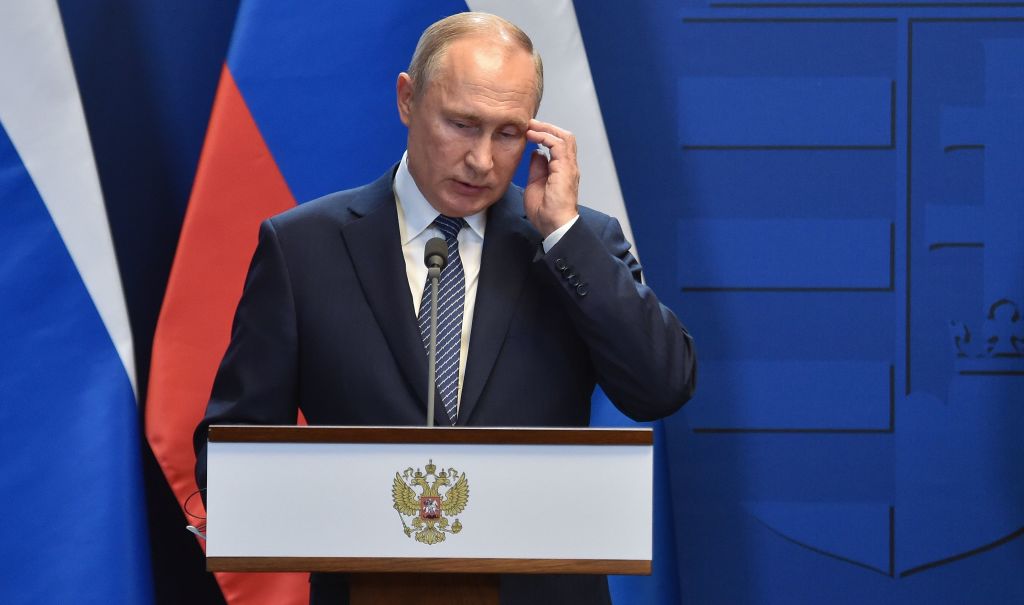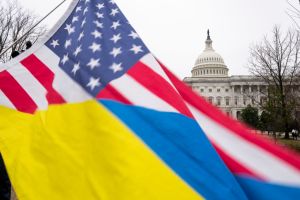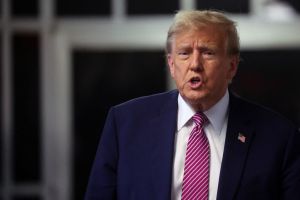In news that should surprise nobody, the German government says there is a ‘certain likelihood’ Alexei Navalny, the Russian opposition figure who fell ill while on a domestic flight last week and was evacuated to Germany on the weekend, was poisoned. According to doctors treating him, Navalny was poisoned by an unknown substance from ‘within the group of cholinesterase inhibitors’, indicating he is likely the victim of a nerve agent attack.
For many (perhaps too many), this already has Vladimir Putin’s finger prints all over it. Yet over the last two decades of being in power, Putin has blurred the boundaries between state, quasi-state, and non-state to the point where determining what is carried out by the state and what is carried out for the state has become almost impossible. This is particularly the case where violence is concerned.
Putin has purposely created an environment in Russia in which the state does not exercise a monopoly on violence — or put differently, the state exercises a monopoly on the ability to determine who is allowed to commit violence from within a range of state, quasi-state, and non-state actors, all of whom are deemed to be furthering the Kremlin’s aims.
At home, critics have been murdered with considerable regularity since Putin came to power. There are far too many to mention, but particularly notable victims include the journalist Anna Politkovskaya, the human rights activist Natalia Estemirova, and the lawyer Stanislav Markelov. Some were undoubtedly murdered by the state, and others not. Yet more have been poisoned and survived, including the opposition activist Vladimir Kara-Murza (twice) and performance artist Pyotr Verzilov.
Few investigations have ever been carried out, and those that have were promptly closed when the truth was deemed inconvenient.
The investigation into the 2015 murder of Boris Nemtsov, an opposition political figure who was shot within touching distance of the Kremlin, is a case in point. A group of five Chechen men were all found guilty of murdering Nemtsov for a fee, one of whom was an officer in the security forces of Chechnya’s vicious and vulgar leader Ramzan Kadyrov. During the trial, however, the judge refused to summon Kadyrov for questioning or to study the possibility that he was involved in the killing.
[special_offer]
Abroad, Russia still wages war in the traditional sense, as many Syrians can attest. But it also uses ‘little green men’ — the Russian soldiers who appeared in Crimea without identifying insignia to lay the groundwork for Moscow’s annexation of the peninsula in 2014 — and sends so-called ‘military advisers’ to do the Kremlin’s bidding in places like Venezuela. It also uses mercenaries, such as the Wagner group, which dispatches hired-hands to do Russia’s unofficial fighting in places including the Central African Republic and Libya.
As Porton Down knows only too well, the Kremlin also kills — and tries to kill — people. Occasionally Russia uses state employees to do this. Sergei and Yulia Skripal were poisoned by active GRU, military intelligence, officers. But occasionally it doesn’t. The murder of Alexander Litvinenko — as Sir Robert Owen’s inquiry established – was carried out by two individuals, one of whom was a former KGB officer (the other of whom was a failed porn star), under the direction of the FSB, Russia’s security service. Last summer, Zelimkhan Khangoshvili was assassinated in a Berlin park in an operation planned and organized by the FSB, but apparently carried out by a former GRU officer.
The main point about Navalny’s poisoning, of course, isn’t whether Putin’s finger prints are on it, but instead that Putin has created an environment in which people feel it is permissible to kill with impunity.


















